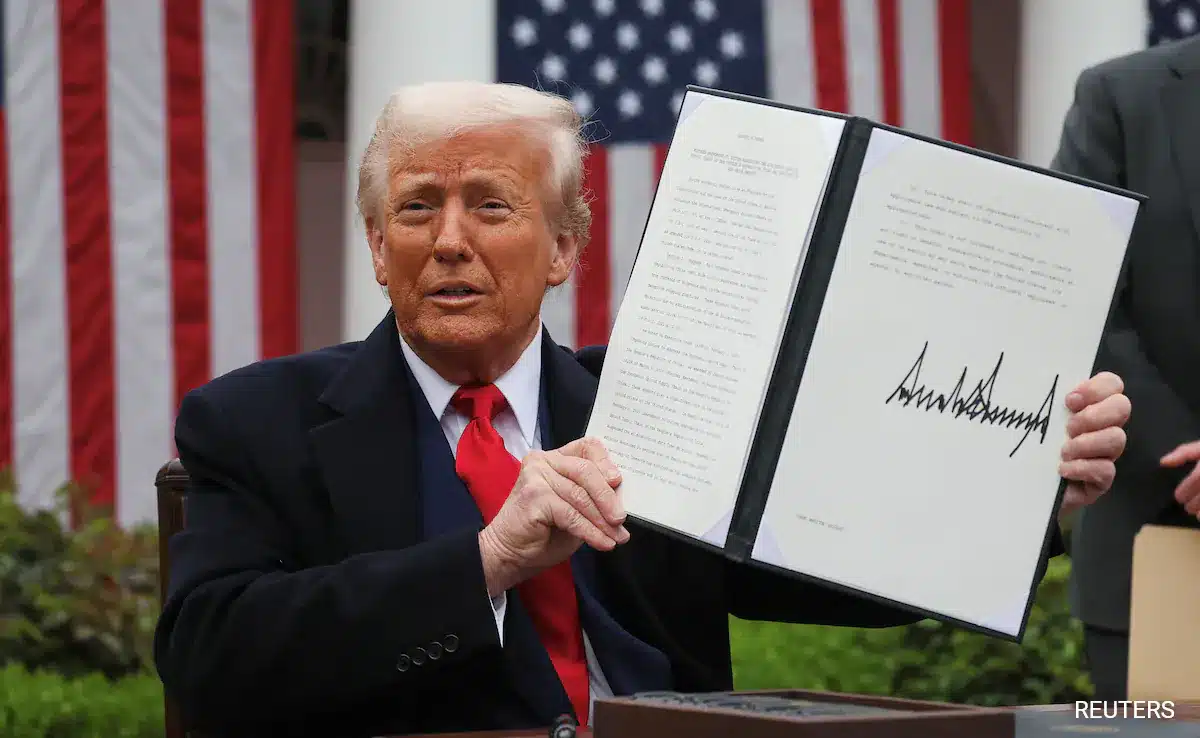Concerns Rise in IT Sector Over Potential Trump Tariffs on India’s Software Exports

India’s information technology sector is facing significant anxiety over the potential imposition of tariffs on software exports to the United States by the Trump administration. This concern arises amidst ongoing global economic uncertainties and the increasing prevalence of AI-driven automation. With over 60% of the sector’s revenue generated from the US market, the implications of such tariffs could be profound, affecting operations and profitability for many Indian IT firms.
Concerns Over Tariffs and Their Impact
The prospect of tariffs on software exports has raised alarms within India’s IT industry, which is valued at approximately $283 billion. Industry experts warn that these tariffs could lead to dual taxation, as Indian software companies already pay significant taxes in the US. The potential for additional restrictions on visa regulations could further complicate matters, resulting in increased operational costs. Companies may need to hire locally in the US or nearby regions to comply with new regulations, which would strain their financial resources.
Major players in the Indian IT sector, including Tata Consultancy Services, Infosys, HCLTech, and Wipro, rely heavily on the US market for their earnings. The sector’s workforce is predominantly based in India, making it vulnerable to changes in US policy. Although the Trump administration has not officially announced any plans to impose tariffs, concerns escalated following comments from Peter Navarro, a senior trade advisor to the President. His social media post suggested that tariffs could be applied to all outsourcing and foreign remote workers, intensifying fears among Indian tech firms.
The Political Landscape and Its Implications
Phil Fersht, CEO of HFS Group, suggests that discussions surrounding tariffs on India’s outsourcing sector may be more about political messaging than actual policy changes. However, the mere mention of potential penalties creates uncertainty and could lead to increased operational costs for companies already grappling with challenging market conditions. Fersht emphasizes the complexity of taxing digital labor flows compared to traditional goods, noting that the US economy relies significantly on Indian IT talent, both through onsite H-1B visas and offshore services.
Moreover, the influence of tech industry leaders on the Trump administration cannot be overlooked. Many of these leaders advocate for strong ties with India, as their global businesses depend on Indian engineering talent and market access. This dynamic adds another layer of complexity to the ongoing discussions about tariffs and their potential impact on the IT sector.
Industry Reactions and Future Outlook
Yugal Joshi, a partner at the Everest Group, highlights the potential for double taxation if tariffs are implemented. He warns that such measures could hinder the growth of India-based service providers and Global Capability Centers (GCCs). The Indian IT sector’s reliance on the US market makes it particularly susceptible to policy changes, and any tariffs could disrupt established business models.
As the situation develops, industry stakeholders are closely monitoring the political landscape for any signs of impending tariffs. The uncertainty surrounding US trade policies continues to loom large over the Indian IT sector, prompting calls for clarity and stability. With the sector’s future hanging in the balance, companies are preparing for various scenarios while advocating for policies that support their continued growth and success in the global market.
Observer Voice is the one stop site for National, International news, Sports, Editor’s Choice, Art/culture contents, Quotes and much more. We also cover historical contents. Historical contents includes World History, Indian History, and what happened today. The website also covers Entertainment across the India and World.

